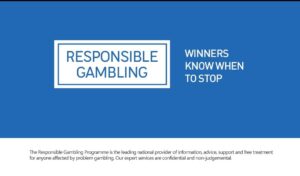# Financial Recovery After Gambling Addiction
Recovering from gambling addiction involves more than stopping gambling—it requires rebuilding your financial foundation and creating sustainable money management practices.
Assessing the Financial Damage
Complete Financial Inventory
- List all debts and obligations
- Account for depleted savings and investments
- Calculate total gambling-related losses
- Identify damaged credit and relationships
Immediate Financial Priorities
- Secure basic needs (housing, food, utilities)
- Prevent further financial damage
- Address urgent debt situations
- Protect remaining assets
Debt Management Strategies
Prioritizing Debts
1. **Secured debts** (mortgage, car loans)
2. **Essential services** (utilities, insurance)
3. **High-interest debts** (credit cards, payday loans)
4. **Unsecured debts** (personal loans, medical bills)
Negotiating with Creditors
- Contact creditors before missing payments
- Explain your situation honestly
- Request payment plans or hardship programs
- Get agreements in writing
Professional Debt Help
- Non-profit credit counseling services
- Debt management plans
- Legal advice for complex situations
- Bankruptcy consultation if necessary
Creating a Recovery Budget
Essential vs. Non-Essential Expenses
- Focus on basic needs first
- Eliminate luxury and discretionary spending
- Find ways to reduce fixed costs
- Avoid new debt during recovery
Building Emergency Funds
- Start with small, achievable goals
- Automate savings to build consistency
- Use windfalls for emergency fund building
- Protect emergency funds from temptation
Rebuilding Credit
Understanding Credit Damage
- Obtain free credit reports
- Identify gambling-related credit issues
- Understand how late payments affected scores
- Plan timeline for credit recovery
Credit Rebuilding Strategies
- Make all payments on time going forward
- Pay down existing balances
- Avoid closing old credit accounts
- Consider secured credit cards if necessary
Income Restoration
Employment Considerations
- Address work performance issues
- Explore career advancement opportunities
- Consider additional income sources
- Protect current employment
Skill Development
- Invest in education and training
- Develop marketable skills
- Network professionally
- Consider career counseling
Long-Term Financial Planning
Setting Financial Goals
- Short-term stabilization goals
- Medium-term debt elimination
- Long-term wealth building
- Retirement planning restart
Investment Considerations
- Conservative approach during early recovery
- Avoid high-risk investments
- Focus on steady, predictable growth
- Professional financial advice
Protecting Against Relapse
Financial Safeguards
- Limited access to large amounts of money
- Trusted person oversight of finances
- Automatic bill paying and saving
- Regular financial check-ins
Avoiding Financial Triggers
- Stay away from gambling-related financial products
- Avoid get-rich-quick schemes
- Be cautious with investment risks
- Maintain realistic financial expectations
Family Financial Recovery
Rebuilding Trust
- Full financial transparency
- Joint decision-making on major purchases
- Regular family financial meetings
- Professional family counseling
Protecting Family Finances
- Separate accounts during early recovery
- Limited access to family funds
- Clear agreements about spending
- Gradual restoration of financial responsibilities
Professional Support
Financial Counselors
- Budget planning assistance
- Debt management guidance
- Financial education programs
- Ongoing accountability
Legal and Tax Help
- Bankruptcy consultation if needed
- Tax debt resolution
- Asset protection advice
- Contract and creditor negotiations
Building New Money Habits
Mindful Spending
- Track every expense
- Use cash instead of cards
- Implement waiting periods for purchases
- Practice gratitude for what you have
Emotional Relationship with Money
- Understand money-related emotions
- Develop healthy coping strategies
- Address underlying money beliefs
- Celebrate financial progress
Remember: Financial recovery is a gradual process that requires patience, discipline, and often professional support. Focus on progress, not perfection.




